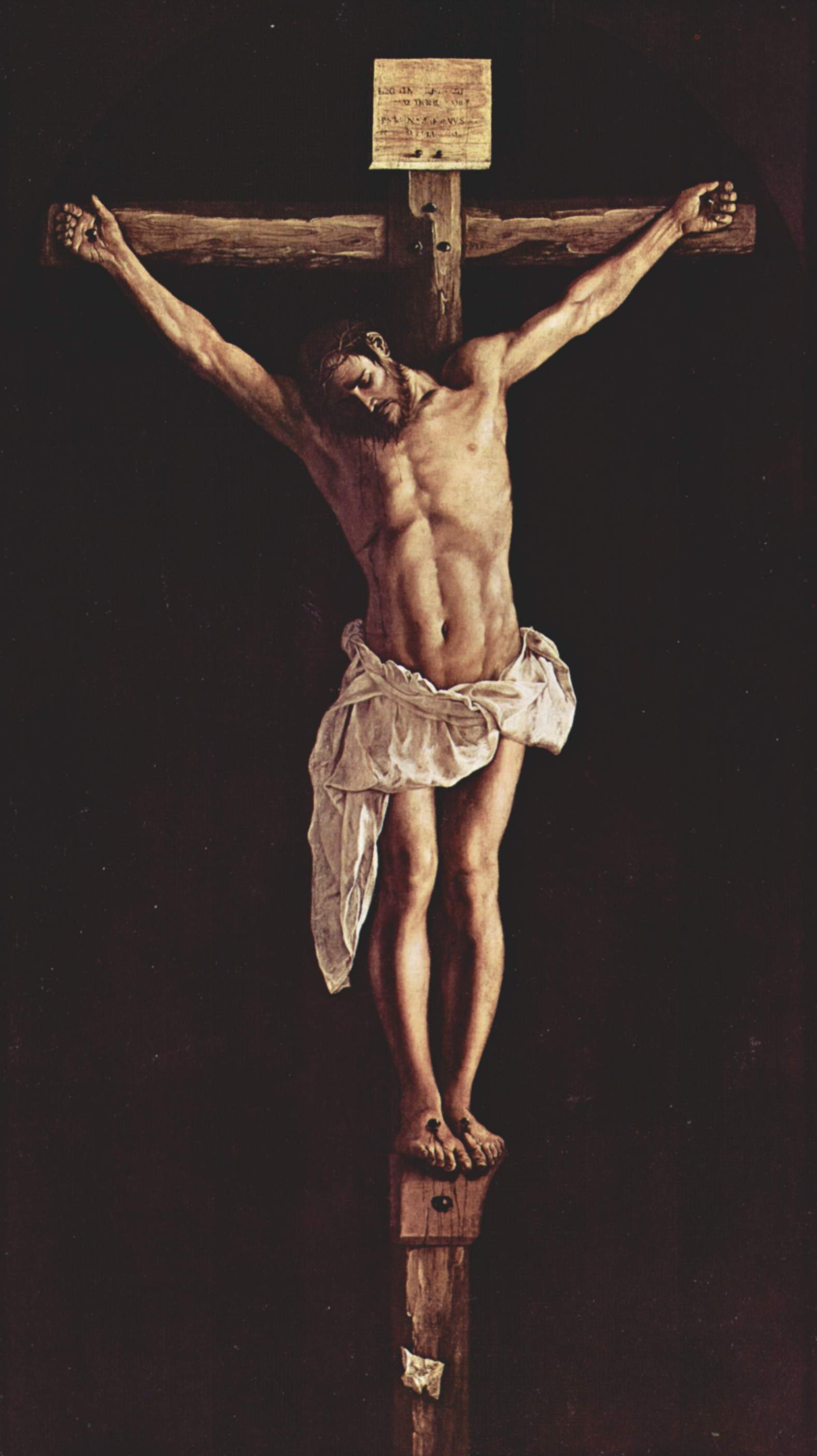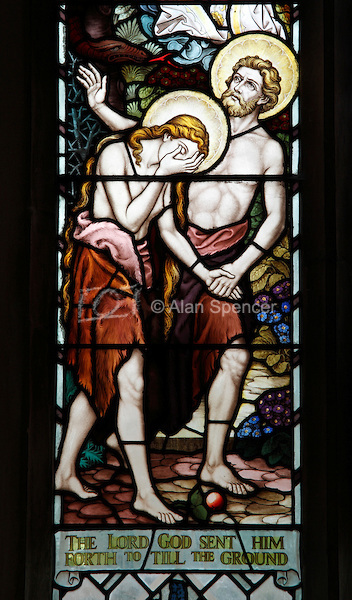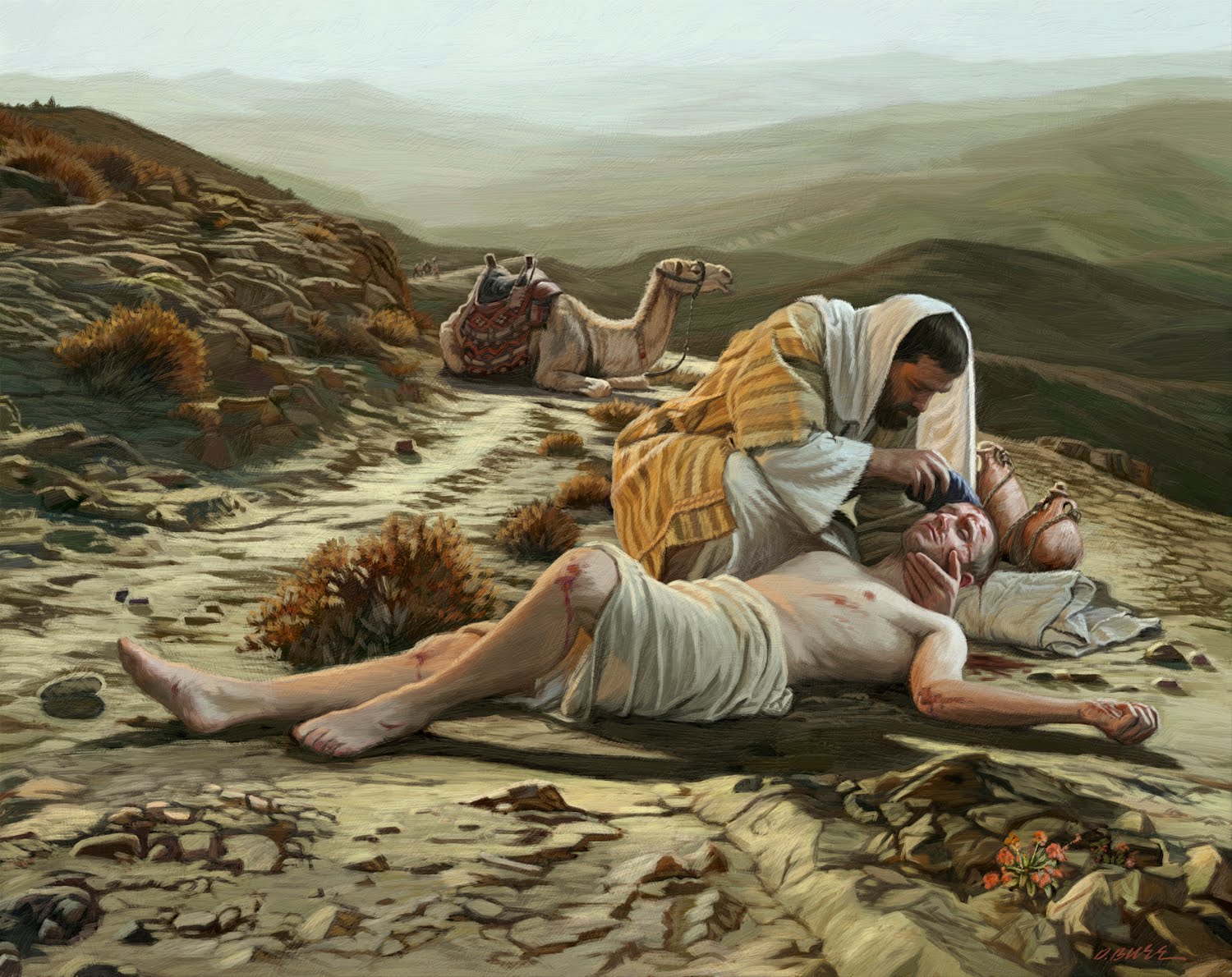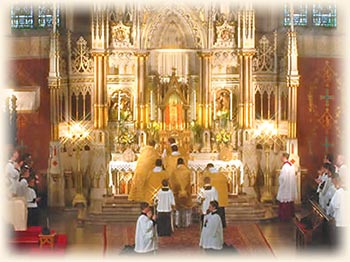I also want the women to dress modestly, with decency and propriety, adorning themselves, not with elaborate hairstyles or gold or pearls or expensive clothes, but with good deeds, appropriate for women who profess to worship God. A woman should learn in quietness and fullFor the last four generations of the women in my family, we have been confused by St. Paul. Did he just not like women? Was he a misogynist? We have wondered if the reason he never married was because he disliked females, because obviously he wanted us to shut up and not be seen.
submission. I do not permit a woman to teach or to assume authority over a man; she must be quiet. For Adam was formed first, then Eve. And Adam was not the one deceived; it was the woman who was deceived and became a sinner. But women will be saved through childbearing—if they continue in faith, love and holiness with propriety. I Timothy 2: 9-15
Therefore, Christian women dismiss this celibate Apostle because he obviously didn't understand women. He was a chauvinist bigot, right?
Yet, it is not only St. Paul who gives this same message to women. The very rock and foundation of our church, St. Peter, writes something similar.
Wives, in the same way submit yourselves to your own husbands so that, if any of them do not believe the word, they may be won over without words by the behavior of their wives, when they see the purity and reverence of your lives. Your beauty should not come from outward adornment, such as elaborate hairstyles and the wearing of gold jewelry or fine clothes. Rather, it should be that of your inner self, the unfading beauty of a gentle and quiet spirit, which is of great worth in God’s sight. For this is the way the holy women of the past who put their hope in God used to adorn themselves. They submitted themselves to their own husbands, like Sarah, who obeyed Abraham and called him her lord. You are her daughters if you do what is right and do not give way to fear. I Peter 3: 1-6Yes, I know reading this makes today's modern, liberated female furious with offense, dismissing these Apostles' words as oppressive remnants from a male-dominated world. Some jump on the idea that any literal interpretation of the text must be wrong. "That's just your personal interpretation of the text, Mrs. Beem, prove it is the right one!"
Believe me, I sympathize. I am a strong, independent, intelligent Texas women who is used to being in charge. I have always been suspicious of, if not down right offended by these patronizing passages.
Yet, Catholicism has taught me that today's feminist reading of these passages is erroneous. These great saints gave women some of our most precious, grace-filled Words of God.
In fact, with the proper perspective, we can say that St. Paul and St. Peter revealed to women how merciful is our Father. God was always looking out for us with a special and tender understanding of our weaknesses. Look at the warning of St. Peter to husbands:
Here's why these admonitions from God need to be seen as the greatest gift for women, not to rob us of our dignity or oppress us. To fully explain, we need to return to the topic at hand. And that is how we are being restored into the image of God.
I suggested in parts one and two that to return us to His image, saved Christians must undergo a transformation we often call sanctification. And the penances for the guilt of our first parents, given by God in the garden, still remain to restore us today.
In the garden, Eve was deceived. Because Adam did not take authority over his kingdom, Eve fell. And though her sin was first, it was not the one for which mankind was punished. (I Cor. 15:22, Rom. 5: 17.) So God looked upon the woman with much kindness and mercy.
While the man had to act against his nature and go out from the comfort of his parent's shelter, seek a wife, have children and take care of them--cleaving to his wife (or being faithful to her) in contradistinction, a woman's sanctification was natural.
Think of the goodness of this system for women! Eve's daughters were not thrust out of the protection of home, like her male counterpart. While the man must go out and find the courage to self give—to find ways of self sacrifice, a woman produces her own sanctification from her own body!
Wives need but to submit to their husbands and they bring forth children. And through children they will understand what self-giving and sacrificial love is. Hers is the easier, much easier, route to sanctification for she need only to do what was natural to her.
How magnificent for God to give the woman the way of learning love from having children! In fact, the woman's sanctification was her very reward--children are the greatest blessing.
And that is exactly what Satan has attacked. Women have been deceived into thinking that their position as a mother and wife is somehow less respected and important than a man's position. Before you young women get angry with me, please stop and think about this.
A brilliant general expends his most vital resources, both physical and spiritual, on the enemies' points of strength. One can tell what Satan considers the most important based upon what he focuses his fiercest and most ferocious attacks. Think about what is going on in the world today with the hysterical focus on overpopulation. The environmental movement is trying to convince the nations that to save the planet we must discourage people from having children--that little feet have the largest carbon footprint.
Demons are attempting a maniacal and staggering rout of the traditional family in confusing the roles of male and female, the suppressing of offspring by contraception and abortion and euthanasia.
With this agenda, Satan has attempted to keep women deceived ever since the Garden. Through women's lib, Satan has done something most clever, he has again made women feel they have the right to be in charge. He has betrayed them into believing they should attain the man's position of power and independence.
The Father of Lies slowly introduced the "freedom" of a childless existence, having women fall to the lie that they will be happier if they give themselves sexually to men without any pretense of desiring marriage or conceiving with the man with whom she is having sex.
We young women born in the sixties were told, "You don't have to be a mom! You have the right to choose a career. A child is your option, motherhood is a drudgery." Then in the seventies women were told, now that the culture had thrown off the social taboos of fornication, you can take a pill and sleep with anyone you wish. "Be smart. Don't waste your life. Get an education and job. Don't get stuck with babies."
Now in the 21st-century, babies are irresponsible. Women must get an education, and then they must sacrifice their best child-bearing years to pay off those crushing student loans and are enslaved in a system that makes them feel they have added to the planet's groaning overpopulation of they want families. Women in Japan are so shamed into believing children are irresponsible that they are treating their pets as children complete with taking them on walks in strollers in baby clothes, giving them bottles and birthdays.
Yet, Catholicism has taught me that today's feminist reading of these passages is erroneous. These great saints gave women some of our most precious, grace-filled Words of God.
In fact, with the proper perspective, we can say that St. Paul and St. Peter revealed to women how merciful is our Father. God was always looking out for us with a special and tender understanding of our weaknesses. Look at the warning of St. Peter to husbands:
Husbands, in the same way be considerate as you live with your wives, and treat them with respect as the weaker partner and as heirs with you of the gracious gift of life, so that nothing will hinder your prayers. I Peter 3: 7If a husband is not respectful of his wife, his prayers are hindered. Are we really attempting to humble ourselves and listen with love to the words of our Maker?
Here's why these admonitions from God need to be seen as the greatest gift for women, not to rob us of our dignity or oppress us. To fully explain, we need to return to the topic at hand. And that is how we are being restored into the image of God.
I suggested in parts one and two that to return us to His image, saved Christians must undergo a transformation we often call sanctification. And the penances for the guilt of our first parents, given by God in the garden, still remain to restore us today.
In the garden, Eve was deceived. Because Adam did not take authority over his kingdom, Eve fell. And though her sin was first, it was not the one for which mankind was punished. (I Cor. 15:22, Rom. 5: 17.) So God looked upon the woman with much kindness and mercy.
While the man had to act against his nature and go out from the comfort of his parent's shelter, seek a wife, have children and take care of them--cleaving to his wife (or being faithful to her) in contradistinction, a woman's sanctification was natural.
To the woman [the Lord] said, “I will make your pains in childbearing very severe; with painful labor you will give birth to children. Your desire will be for your husband, and he will rule over you.” Genesis 3: 16Childbirth was the woman's way back to restoration to His image.
Think of the goodness of this system for women! Eve's daughters were not thrust out of the protection of home, like her male counterpart. While the man must go out and find the courage to self give—to find ways of self sacrifice, a woman produces her own sanctification from her own body!
Wives need but to submit to their husbands and they bring forth children. And through children they will understand what self-giving and sacrificial love is. Hers is the easier, much easier, route to sanctification for she need only to do what was natural to her.
How magnificent for God to give the woman the way of learning love from having children! In fact, the woman's sanctification was her very reward--children are the greatest blessing.
And that is exactly what Satan has attacked. Women have been deceived into thinking that their position as a mother and wife is somehow less respected and important than a man's position. Before you young women get angry with me, please stop and think about this.
A brilliant general expends his most vital resources, both physical and spiritual, on the enemies' points of strength. One can tell what Satan considers the most important based upon what he focuses his fiercest and most ferocious attacks. Think about what is going on in the world today with the hysterical focus on overpopulation. The environmental movement is trying to convince the nations that to save the planet we must discourage people from having children--that little feet have the largest carbon footprint.
Demons are attempting a maniacal and staggering rout of the traditional family in confusing the roles of male and female, the suppressing of offspring by contraception and abortion and euthanasia.
With this agenda, Satan has attempted to keep women deceived ever since the Garden. Through women's lib, Satan has done something most clever, he has again made women feel they have the right to be in charge. He has betrayed them into believing they should attain the man's position of power and independence.
The Father of Lies slowly introduced the "freedom" of a childless existence, having women fall to the lie that they will be happier if they give themselves sexually to men without any pretense of desiring marriage or conceiving with the man with whom she is having sex.
We young women born in the sixties were told, "You don't have to be a mom! You have the right to choose a career. A child is your option, motherhood is a drudgery." Then in the seventies women were told, now that the culture had thrown off the social taboos of fornication, you can take a pill and sleep with anyone you wish. "Be smart. Don't waste your life. Get an education and job. Don't get stuck with babies."
Now in the 21st-century, babies are irresponsible. Women must get an education, and then they must sacrifice their best child-bearing years to pay off those crushing student loans and are enslaved in a system that makes them feel they have added to the planet's groaning overpopulation of they want families. Women in Japan are so shamed into believing children are irresponsible that they are treating their pets as children complete with taking them on walks in strollers in baby clothes, giving them bottles and birthdays.
Satan has used the capitalist system and feminization to destroy the natural means for female's to learning the joy of self giving. He has turned sacrifice into a bad word, especially the sacrifices of being a wife and mother and diverted women's to believe their happiness and fulfillment will be found in fighting for their rights and achieving success in a culture of money, power and fame.
__________________________________________________
A note:
This is certainly not a criticism of those whose vocation is to be a monk or priest or nun. In fact, those whose vocation is to remain celibate are an example of God's way of learning the joy of self-sacrifice outside of having a family. They do not make their lives about watching sports or entertainment or living for personal fulfillment nor happiness. They go out and find those people that need their help. They become the bulwark for other people's families. Keep in mind, though, that their sanctification requires much more effort, for it is found only through a supernatural grace.
_________________________________
God set up a wonderful way for us to learn the joy of self-sacrifice seen in the Cross. And our culture of success being achieved through fame or fortune, through pursuing happiness instead of holiness, of being ruggedly independent instead of courageously obedient to God, of always feeling good rather than giving sacrificially for others' good, is taking us down a path where we resent and reject God's most precious gift and that is to be like Him. We have fallen for Satan's trap.
Have the courage to see past the trap. For God's future for us is eternal glory.
We will be restored to our natural selves as Kings and Queens in His Image by learning that the greatest joy in our lives resembles the cross. When we look upon Christ and His passion, we see the greatest example of love and that is the joy of suffering and self-sacrifice to the point of death. Giving all.
When, through His grace, we learn this--we will be perfect, even as our Father in Heaven is perfect.
__________________________________________________
A note:
This is certainly not a criticism of those whose vocation is to be a monk or priest or nun. In fact, those whose vocation is to remain celibate are an example of God's way of learning the joy of self-sacrifice outside of having a family. They do not make their lives about watching sports or entertainment or living for personal fulfillment nor happiness. They go out and find those people that need their help. They become the bulwark for other people's families. Keep in mind, though, that their sanctification requires much more effort, for it is found only through a supernatural grace.
_________________________________
God set up a wonderful way for us to learn the joy of self-sacrifice seen in the Cross. And our culture of success being achieved through fame or fortune, through pursuing happiness instead of holiness, of being ruggedly independent instead of courageously obedient to God, of always feeling good rather than giving sacrificially for others' good, is taking us down a path where we resent and reject God's most precious gift and that is to be like Him. We have fallen for Satan's trap.
Have the courage to see past the trap. For God's future for us is eternal glory.
We will be restored to our natural selves as Kings and Queens in His Image by learning that the greatest joy in our lives resembles the cross. When we look upon Christ and His passion, we see the greatest example of love and that is the joy of suffering and self-sacrifice to the point of death. Giving all.
When, through His grace, we learn this--we will be perfect, even as our Father in Heaven is perfect.




















_-_crucifix.jpg/790px-Saint_Augustine_Catholic_Church_(Lebanon,_KY)_-_crucifix.jpg)

